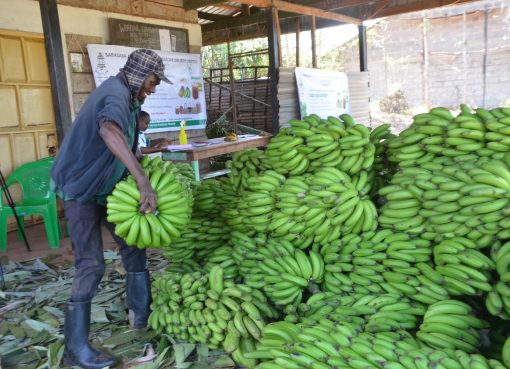The government is appealing to individuals and health facilities withholding empty medical oxygen cylinders to return them as a matter of urgency to address the current shortage
Health Cabinet Secretary Mutahi Kagwe said currently there is a shortage of the cylinders and oxygen in the hospitals to assist in the Covid-19 treatment.
“Last year the total production and requirement for industry was 410 tonnes, it went up around January to 560 tonnes and now we are heading to the demand at 880 tonnes and this situation clearly shows that the industry is completely stretched,” he said.
Speaking today at Afya house after meeting various suppliers of industrial, medical and special gases, the CS noted that there are a lot of facilities with the idle cylinders.
“People are not appreciating just how important it is not to have cylinders lying around when people are dying because of lack of oxygen,” he said.
Kagwe has further noted that there is need to increase infrastructure for piping in hospitals explaining that what is happening now is that a lot of facilities are using individual cylinders per one patient and this is inefficient and dangerous since one cylinder can be used by a number of people if oxygen is piped on bedsides.
“We are therefore asking facilities both County and National government to fast track the piping of oxygen to bed outlets so that we are able to use the cylinders for industry and fill some of them,” he said.
Kagwe further appealed to medics who are heading hospitals to quickly work on repairs of oxygen concentrators which are 20,000 to be used for both home based care and also hospitals.
He noted that currently there are 70 oxygen plants in the country that need to be repaired urgently and the government is working towards this to ensure they revive the plants, but added that with the support of the World Bank, another six plants are being put up in various regions of the country.
Going forward however, he said that the government will standardize the kind of oxygen plants that we have in the country.
“As we speak now some of them do not have spare parts since some of the plants that were built a couple of years ago, essentially came from suspect sources. An example is a plant at Kenyatta National Hospital that came from Czechoslovakia, a country that currently does not exist,” he said.
The ministry of health, he added, is working with counties to ensure that this standardization has been spelt out clearly going forward.
“It is not just enough that we produce oxygen, but we need purity and quality which is very important and the industry is making certain to ensure the quality of oxygen we get is what is required.”
The CS said they will be appealing and working with the National Treasury to consider reduction of some of the taxes, given the emergency nature of the requirement of oxygen, hence, an increase in oxygen cylinders supply.
He further said that they are also appealing and working with Pharmacy and Poisons Board (PPB) to make sure certification of gas supplies company is fast-tracked even within keeping in mind the quality, ability of those supplies in order to increase our capacity.
On standardization of the plants, the Ministry, Kagwe said is also looking at a possibility of creating a policy that leans towards having more at home with the lease of oxygen plants rather than the purchase.
“We have seen the challenges of maintenance and requirements in term of qualification of people who maintain them, process of purity of oxygen and so many other issues involved and therefore we are keener to look at policy of lease rather than purchase,” he explained.
Kagwe thanked industry players, particularly the horticulture and food industry saying some of them have sacrificed their industrial production to concentrate on health despite inconveniences.
“We however beg for understanding since now at the moment, the idea is to save lives first and we can deal with other things later.”
Marion Mwangi, Managing Director of BOC gases said the country is at in crisis and needs all the help from patients, hospitals and also decision makers that are holding tanks and decisions around oxygen supply.
“If you are holding cylinders at home or in the hospital for non-Covid or non-emergency care please return them to us. We have lost many cylinders in the last few months and any cylinder you have in your hands can save somebody’s life,” she said.
Ms Mwangi further explained that together with other suppliers of Gas, they are supplying oxygen on a day-to-day basis, rationing what they have, so that every hospital can find supply.
“We are appealing to the industrial customers to understand that we are now focusing on medical cylinders and not industrial because this is a situation that we all must come together and address,” she said.
As of yesterday, the country had a total of 1,221 patients currently admitted in various health facilities countrywide and although 4,060 patients are on Home Based Isolation and Care, 121 patients are in the Intensive Care Unit (ICU), 32 of whom are on ventilatory support and 82 on supplemental oxygen.
By Wangari Ndirangu




